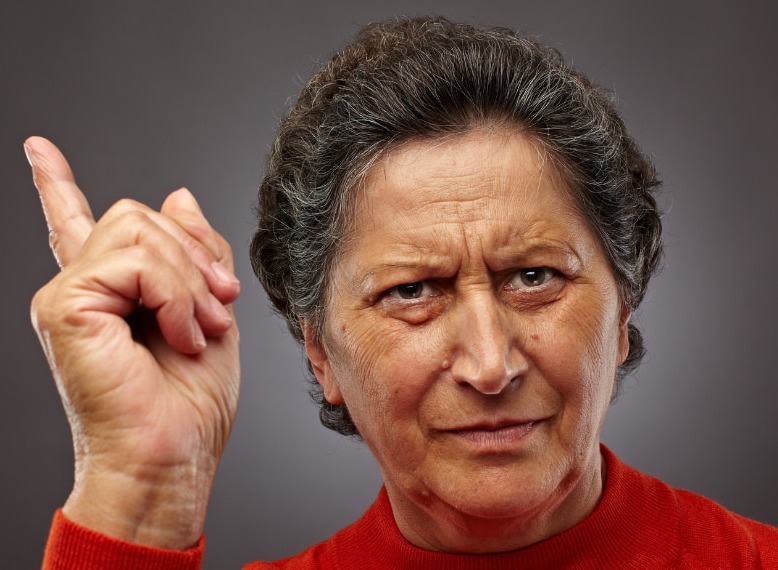Neurodegenerative diseases: what are they, and what are their first signs?
Published Oct 3, 2022 • By Claudia Lima
Neurological diseases are chronic conditions that affect the nervous system, i.e. the brain, the spinal cord, the nerves and the sensory organs.
These diseases are numerous, quite common, and become more frequent with age.
Neurodegenerative diseases are a subgroup of neurological conditions. What are their first signs and symptoms? Can they be prevented? How can they be treated?
Find all the answers in our article!

Neurological disorders, including neurological accidents (brain and spinal cord injuries), affect nearly one billion people worldwide and with the ageing of the population, this figure increases.
These disorders disrupt or interrupt brain function, causing motor, intellectual and psychological damage which may have serious consequences on the patient's personal and social life.
According to the World Health Organization (WHO), one in three people will develop some type of neurological disorder at some point in their lives.
What are neurodegenerative diseases?
Nerve cells are the building blocks of the nervous system, making up the spinal cord and the brain. These cells cannot multiply, so when they become damaged, the body cannot replace them.
Neurodegenerative diseases are characterized by the progressive destruction of certain neurons, leading to the deterioration of nerves and brain tissue over time.
They include such conditions as Alzheimer's disease, Parkinson's disease, Lewy body dementia (LBD), dystonia, multiple sclerosis, epilepsy, stroke, Charcot-Marie-Tooth disease, Huntington's disease, brain tumors, Meniere's disease, migraines, etc.
What are the first symptoms of the neurodegenerative diseases?
Neurological symptoms can cause all forms of pain and affect muscles, senses, sleep, consciousness and mental function.
It is considered that there are as many symptoms, as there are neurological conditions; however, there are certain symptoms that require particular attention and emergency treatment, such as facial paralysis, arm weakness, slurred speech, acute and unusual headaches, seizures or loss of consciousness.
The first signs of Alzheimer's disease are:
- Memory loss, loss of objects,
- Difficulty with everyday tasks,
- Difficulty finding simple words, problems with reasoning, impaired judgement,
- Disorientation in time and space,
- Lack of motivation,
- Anxiety or irritability.
The first signs of Parkinson's disease are:
- Motor abnormalities,
- Constipation,
- Bad mood,
- Olfactory dysfunction,
- Fatigue,
- Difficulty concentrating, difficulty with everyday tasks,
- Disturbed sleep,
- Smaller handwriting.
The first signs of Lewy body dementia are:
- Cognitive impairment, increasing dependence on others,
- Repeated falls,
- Confusion, memory problems,
- Incontinence,
- Difficulty sleeping,
- Episodes of depression.
The first signs of multiple sclerosis are:
- Motor impairment,
- Loss of muscle strength,
- Tingling, numbness,
- A feeling of heaviness,
- Visual disturbances,
- Persistent fatigue.
How are neurodegenerative diseases diagnosed?
The multitude and variety of neurological diseases and their symptoms make their diagnosis rather difficult.
Some symptoms should prompt the patient to see a general practitioner, but are not necessarily associated with a neurodegenerative disease.
The GP will carry out a clinical examination and may prescribe further tests. In many cases, such conditions are hereditary, that is why the patient's medical history is also assessed. Depending on the case, the GP will refer the patient to a neurologist, who is a specialist in the nervous system disorders.
Possible examinations that can help establish the diagnosis of a neurodegenerative disease are: electroencephalography (measurement of the electrical activity of the brain), electromyography (measurement of the electrical activity of a muscle), nerve conduction studies, motor evoked potentials, or MEP, recordings (sensory stimuli test), medical imaging examinations (MRI, angiography, Doppler ultrasound), myelography (X-ray of the spinal cord) or a lumbar puncture.
Neurodegenerative diseases progress slowly but need to be treated quickly.
How can neurodegenerative diseases be treated?
Degenerative diseases are progressive diseases that cannot be cured. However, even if there is no cure, there are therapies that can help slow down their progression. Their aim is to reduce the symptoms and preserve the patient's quality of life.
Drug treatments, cognitive stimuli and lifestyle and dietary changes can all contribute to slowing down the evolutionary process of these diseases.
Can we prevent neurodegenerative diseases?
According to researchers, a good level of education, regular physical activity, a healthy diet and early treatment of cardiovascular risk factors would help limit the risk of dementia.
Also, in the case Parkinson's disease, for example, regular physical activity may help prevent the disease and specialized rehabilitation is able to reduce the risk of complications.
Neurodegenerative diseases have a very significant impact on the quality of life of those affected, as well as on that of their families and carers. That is why it has become an important health issue on the international level, and health organizations all over the world have made the fight against neurodegeneration their absolute priority and have created various programs aimed at raising awareness of these conditions and preventing their development.
Was this article helpful to you?
Give it a "like" and share your thoughts and questions with the community in the comments below!
Take care!
Comments
You will also like

Aggression in Parkinson's disease patients: causes, manifestations and solutions
Apr 17, 2024 • 7 comments

 Facebook
Facebook Twitter
Twitter

